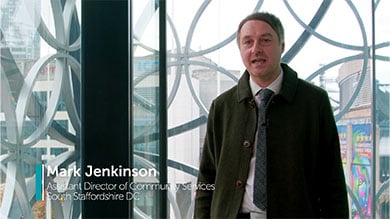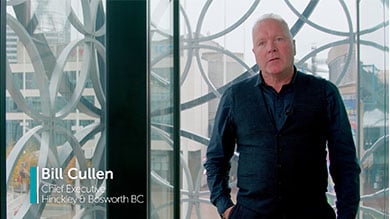14th December 2023
Placemaking in all its forms sits at the heart of creating vibrant, healthy communities says Civica’s Emily Douglin
Taking a place-based approach to services is evolving to a mix of physical and virtual, as local government adapts to both technological advances and demand from citizens. But what does this really look like for today’s councils? Moving from our current ‘place’ to a future model must consider vital factors such as changing populations, climate shift and increased urbanisation.
We’ve spent the past 12 months talking to current and future council leaders in a series of Future Of Local Government roundtables with Solace. Our most recent discussion around placemaking was very timely – at a time when councils are struggling with increasing citizen demand and stretched budgets.
There’s no doubt that the ambition is there in local government to develop, build and explore future opportunities to improve public spaces and the health and wellbeing of citizens – whether via new shopping and cultural centres in our towns or running outreach programmes in more rural areas.
There can be stark differences between placemaking for different types of community. In towns the goals tend to be easier to identify and work towards, but its much harder in rural areas where delivering for smaller communities is more of a challenge.
But there are ways around this. For example, in Hinckley and Bosworth, the council ran a successful outreach programme with cancer charity Macmillan to run fitness programmes in village halls to prepare patients ahead of upcoming treatment and operations. This is just one story showing how councils are using their environment and adapting services to drive up health outcomes.
Data to enable effective placemaking
With all these challenges in mind, it’s now more vital than ever to prioritise and target resources based on evidence of what a particular community really needs. If councils have a clear single view of data across their organisation, this will result in improved decision making on where best to allocate scare resources.
Monica Fogarty,
Chief Executive,
Warwickshire County Council
We need to give strength to voices coming from the local community to evidence that this is what community is saying to us. It’s also about extending that engagement far and wide.
Technology plays a crucial role by enhancing experiences too. As emerging tech continues to advance, from artificial intelligence to virtual and augmented reality, local authorities can use digital tools alongside physical places to foster community engagement, improve infrastructure and create more successful spaces.
In today’s Amazon style, one-click culture, using digital to help connect communities and deliver resources is crucial. Citizens expect a great digital offer from their council too, so online feedback portals or apps can help boost inclusion and collect data on what people are really looking for in their local area.
Building for the future
We’re shaping our urban and rural areas for future populations, not just today’s. Are we confident councillors and members are connected to the ideas and desires of future generations? If not, we need to ensure we’re engaging younger people as much as possible; as ‘digital natives’, mobile technology is the best way to capture their valuable insight.
The more we consult with our communities and partners to evidence where demands are in the placemaking realm, the better. From community leaders, voluntary organisations and NHS health partners to our education establishments and emergency services, everyone has a part to play in shaping how our future places will evolve both at a hyper-local level and more widely across our regions.
While technology can help support so many areas of placemaking, it will never replace the need to maintain physical connections in our communities. That said, it can help to build a vision formed by community voices and extended engagement, providing the blueprint for where our cities, towns and rural areas need to head next.
Emily Douglin is Director, Local Government at Civica. In partnership with Solace, this workshop forms part of a series of #FutureOfLocalGov sessions where we discuss challenges facing local government and getting future ready.
Listen to leaders
The Future of Local Government
Working with Solace, we’re setting out to discover what our future local government might look like in 2032 and how we can all prepare for this.
Join the discussion


